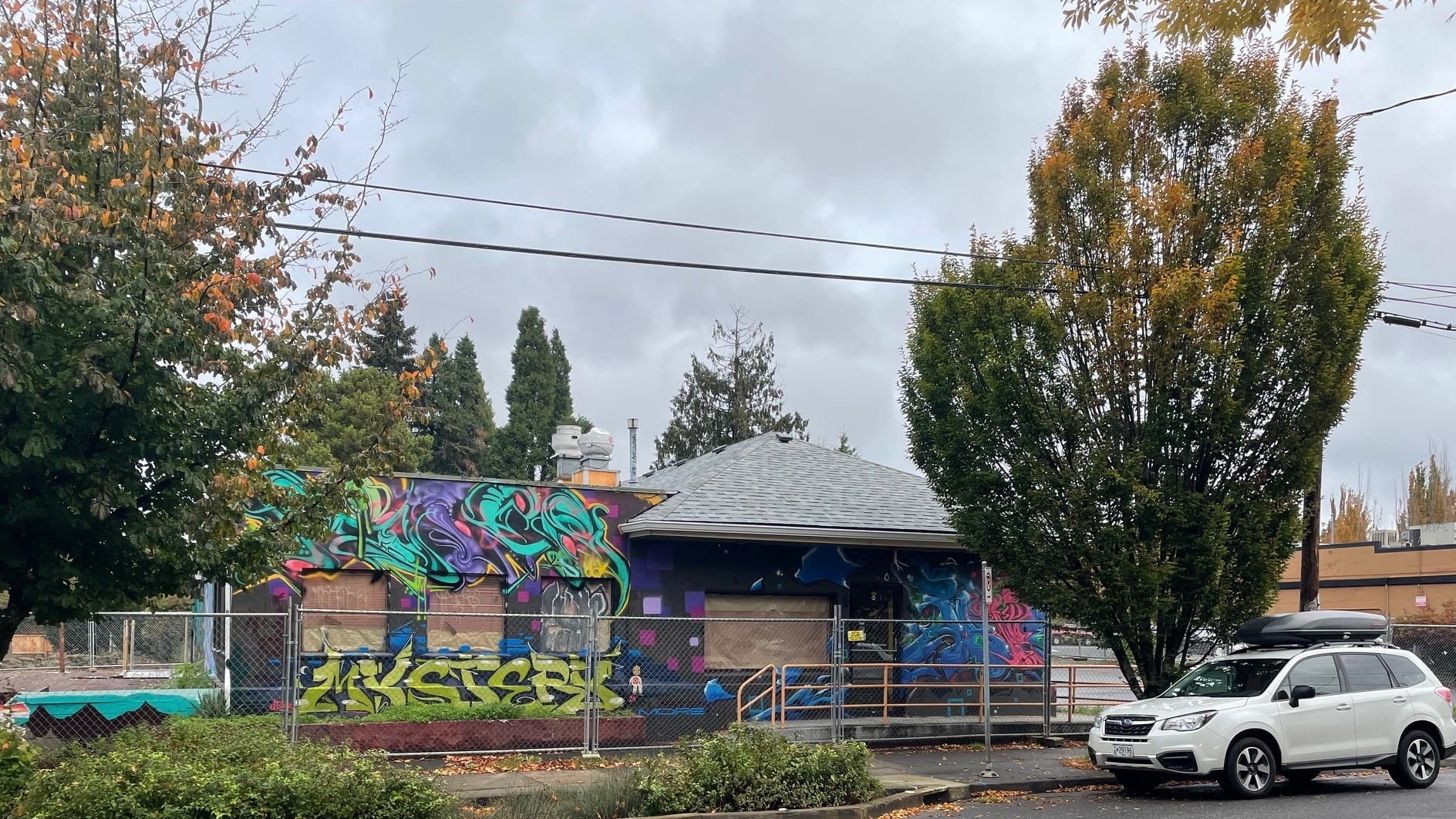- ADDRESS: 3829 SE Division St.
- YEAR BUILT: 1927
- SQUARE FOOTAGE: 14,000 square feet (property)
- MARKET VALUE: $2.11 million
- OWNER: 3829 SE Division LLC and Brandon Johnson
- HOW LONG IT’S BEEN EMPTY: 1 year
- WHY IT’S EMPTY: Economic transition
On a thriving strip of Southeast Division Street just west of César E. Chávez Boulevard, a longtime restaurant building lot lies moribund, surrounded by a security fence. It’s an incongruous sight in one of the eastside’s most popular neighborhoods—but the brown paper over the windows probably won’t be there for long.
The pending redevelopment of the space that most recently hosted Authentic Thai (shuttered in 2023) and, before that, Saigon Kitchen SE tells a story about two facets of Portland’s economy: food service and housing development.
The Richmond neighborhood lot sits just north of a Little Big Burger and just south of the venerable Tom’s Restaurant. Earlier this year, its Hawaii-based owners cashed in, selling the property for $1.825 million.
Monthly debt service of $9,500 would be a tough nut for a single restaurant to support, but Michael Shall, the developer who filed for permits earlier this month to renovate the property, has a different plan. Shall started by enlisting some mural artists to work their magic, covering over taggers’ graffiti. He says the way to make money with the space is through force multiplication—instead of one restaurant, he’s going to host 15 or 16 food carts, surrounding a full-service bar in the existing restaurant, which he’s already reroofed.
Shall says his plan—similar to what he did at a new cart pod called The Heist at 4727 SE Woodstock Blvd.—is a recognition that diners want Lexus-style choice and quality at Toyota prices.
And, he adds, the fact that cart pod entrepreneurs can outbid housing developers who have filled the Richmond neighborhood with apartment buildings over the past decade shows evidence of a weaker residential market.
“In normal times, we would have expected to compete with 10 apartment developers for the property,” Shall says. “That’s not happening right now.”
Shall hopes to pull down the construction fence and start serving food and drinks early next summer.
Every week, WW examines one mysteriously vacant property in the city of Portland, explains why it’s empty, and considers what might arrive there next. Send addresses to newstips@wweek.com.

